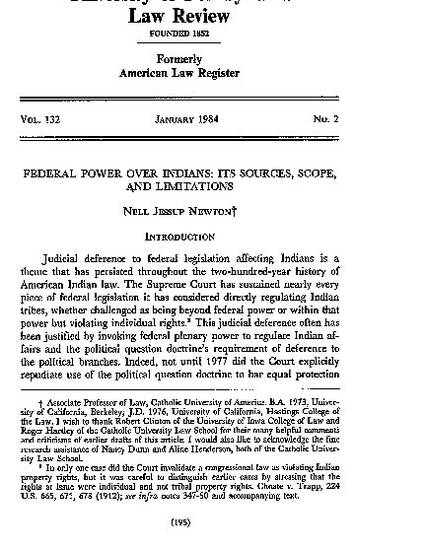
Judicial deference to federal legislation affecting Indians is a theme that has persisted throughout the two-hundred-year history of American Indian law. The Supreme Court has sustained nearly every piece of federal legislation it has considered directly regulating Indian tribes, whether challenged as being beyond federal power or within that power but violating individual rights.' This judicial deference often has been justified by invoking federal plenary power to regulate Indian affairs and the political question doctrine's requirement of deference to the political branches. Indeed, not until 1977 did the Court explicitly repudiate use of the political question doctrine to bar equal protection challenges to federal legislation regulating Indian affairs.
Available at: http://works.bepress.com/nell_jessup_newton/39/
